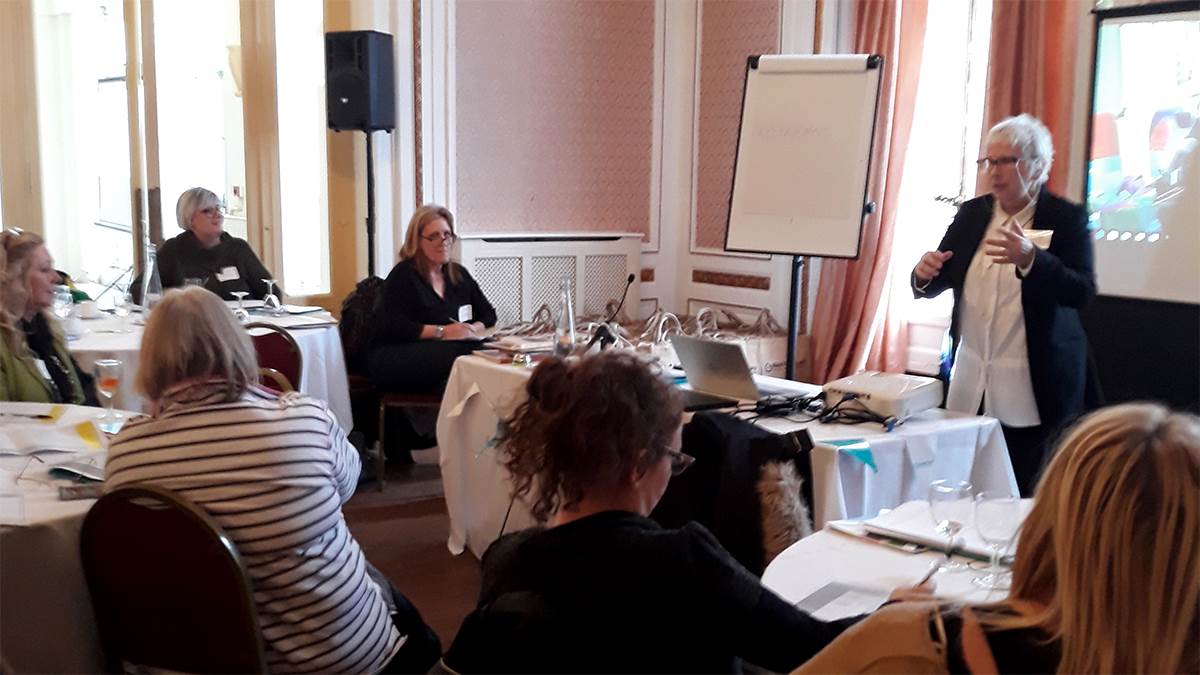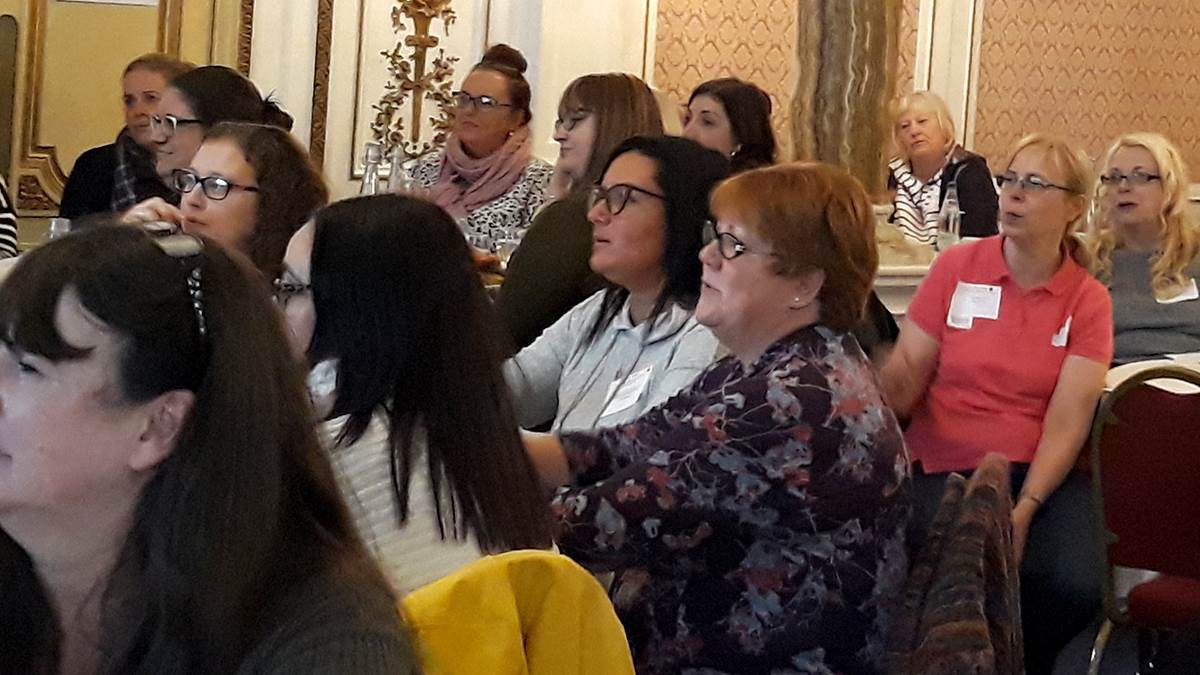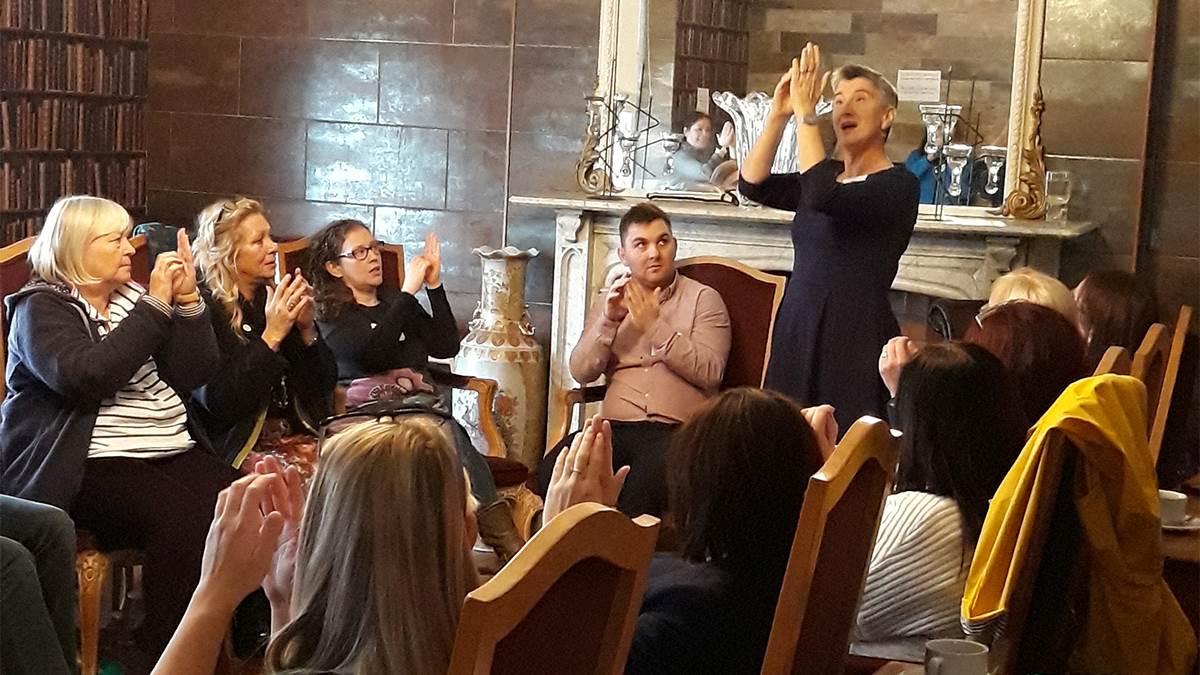Every child has a right to the joy that comes from books, including children with severe and profound learning difficulties
Published on: 09 December 2019 Author: Deborah Robinson
The BookTrust Cymru Early Years Professional Conferences provided a dynamic training offer for Early Years Practitioners. I was privileged enough to give the Keynote for these wonderful events. Taking place in November 2019 in North and South Wales, practitioners were engaged in considering the question:
‘How can we work together to ensure that every child in Wales can enjoy the pleasure that comes from books and sharing books?’

Books are symbols of belonging to a culture
In harmony with the spirit of the conferences, I argued that all children, including those who may never read for themselves, must be regarded as bona fide consumers of books. They must be included through recognition that they ARE literate citizens who have as much to gain from sharing books as anyone, even if the goal is not independent reading in the longer term. They can be regarded as literate when we apply the concept of Inclusive Literacy. This is a movement in inclusive education that reframes literacy, not simply as reading words but as something that involves a wider kind of ‘reading’ such as decoding signs, symbols and pictures. We can also ‘read’ gestures, body language and sensory stimuli. I argued though, that books have a special place as tools for inclusive literacy. They are symbols of belonging to a culture.

Books as tools for social inclusion
On this point, I shared the findings from a research project I did with BookTrust Cymru about the benefits of reading for pleasure for children with additional learning needs, including those with profound and severe learning difficulties. One piece of data had particular impact on our audience since it chimed with a belief they had about books as tools for social inclusion. This piece of data was in the form of a comment from an early years practitioner:
'For children with special educational needs, who are often surrounded by ‘special’ resources and equipment and stuff, a book is a bit unique because it is, how can I put it, its ‘normal’ and what I mean is it is something ‘ordinary’ that people use in the wider world and that carries no ‘special’ stigma. It is really nice for children and families to enjoy that ordinariness. This is why books are so important.'
Combine the right book with a supportive adult who knows the child well
Our research demonstrated that sharing books has a positive impact on children with additional learning needs and their families. These include impacts on development and on wellbeing. These impacts are achieved when we combine the right book with a supportive adult who knows the child’s preferences and stage of development well. For example, we were able to see how a parent used a lilting, singing tone to read a story to her child because it was the sound of the story and not the colours/images of the book that he liked. In another example, we were able to see how a parent gave her child plenty of time to process pictures and sensations when reading a book gifted by BookTrust Cymru called That’s not my Dinosaur.

Workshop sessions were led by committed, inclusive practice experts who explored subjects like ‘How to make storytime inclusive and accessible for deaf children’ and ‘How to understand engagement with books and how to maximise it for children with additional learning needs.’ Practitioners were able to take away Bookstart Superbox resources which included multiple copies of specially selected books for young children.
No child overlooked
Finally, it is important to celebrate that BookTrust Cymru does not overlook any child, recognising them all as deserving of the joy that comes from books. Everyone who came to the conference celebrated that fact and demonstrated their commitment to literate inclusion.
Dr Deborah Robinson is an Assistant Professor Teacher Development, University of Nottingham





Add a comment